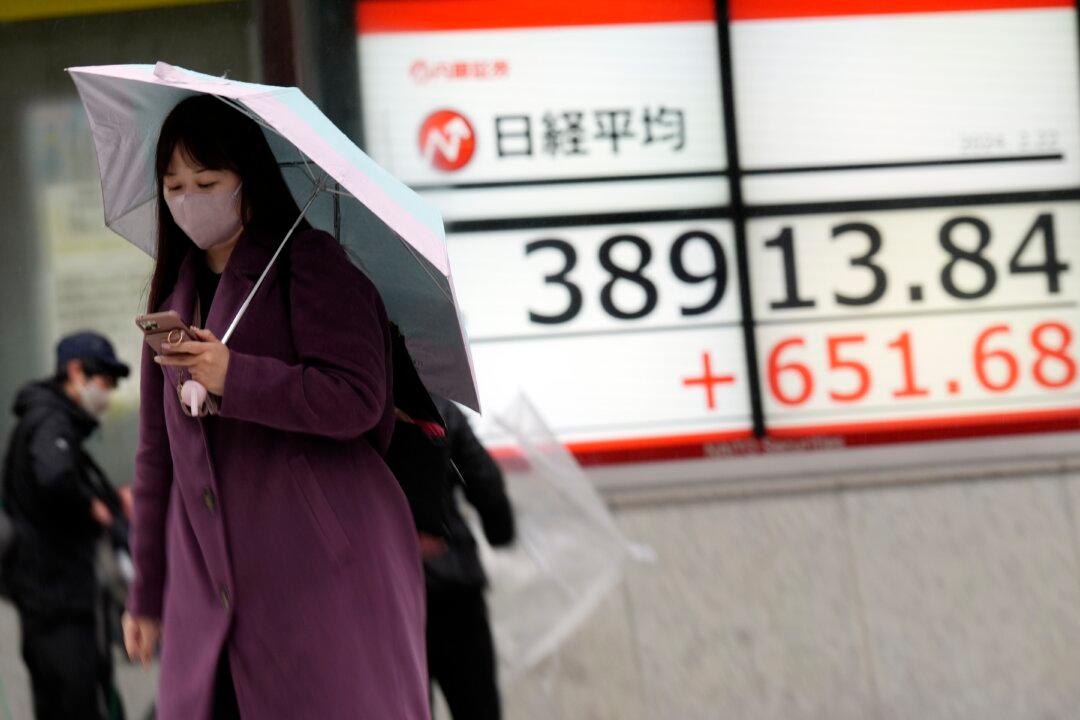BANGKOK—World markets advanced and Japan’s Nikkei 225 share benchmark surged to an all-time high on Thursday, bypassing its previous record set in December 1989.
Tokyo’s benchmark closed at 39,098.68 on Thursday. Its previous record was 38,915.87, set just before Japan’s bubble economy collapsed in the early 1990s.





